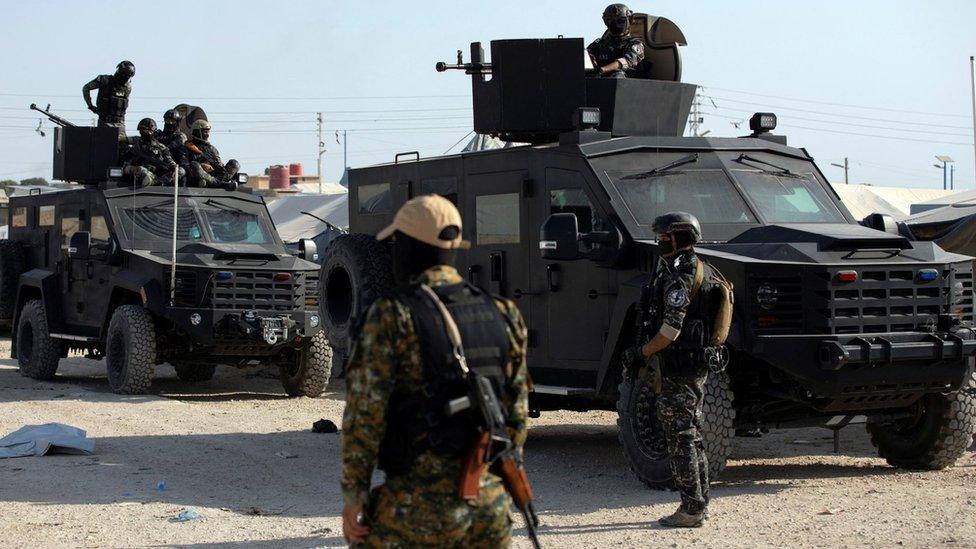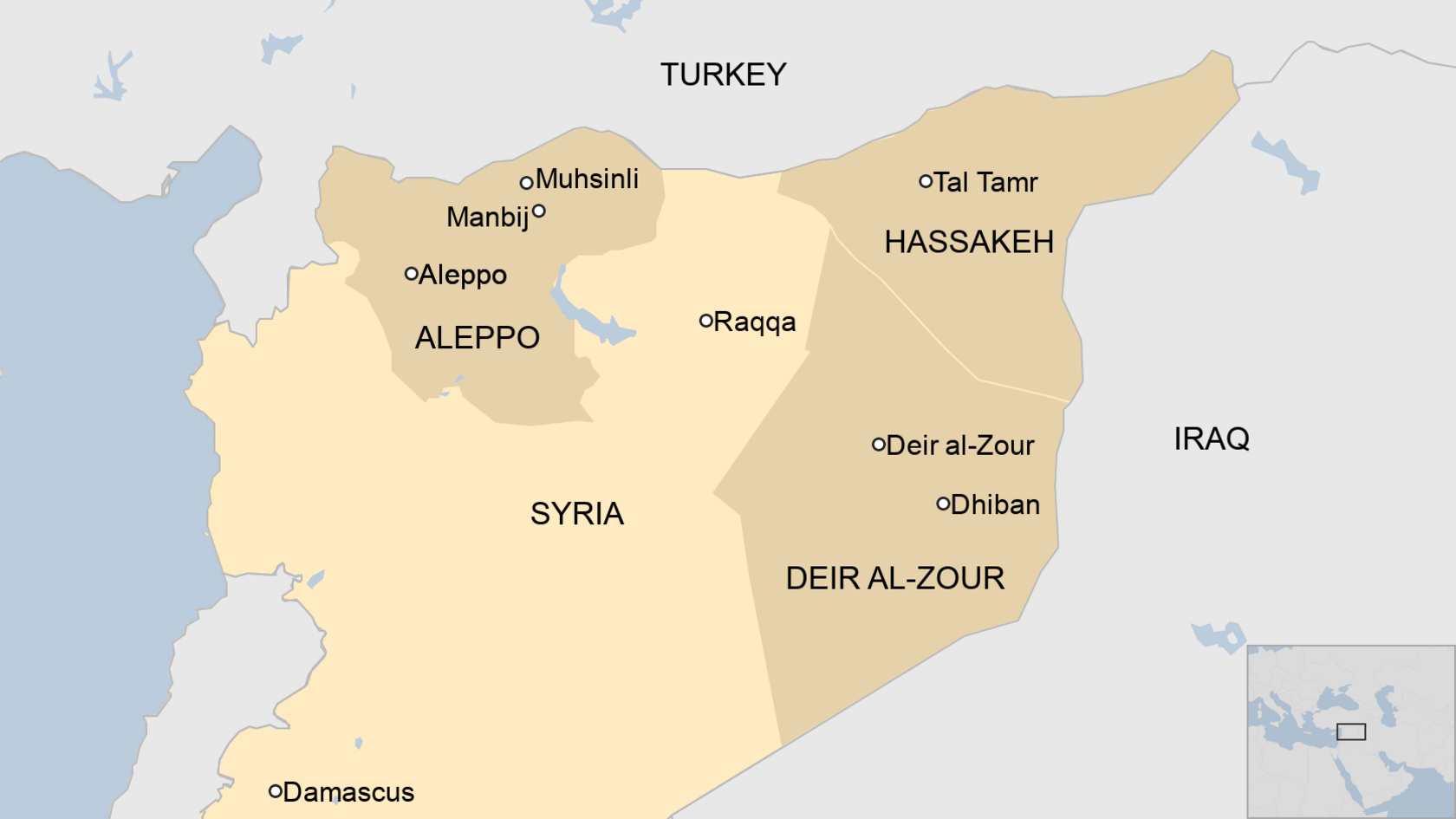Syria: Dozens killed in fighting between SDF and Arab tribesmen
- Published

The US-backed Syrian Democratic Forces and its allies control much of north-eastern Syria
Dozens of people are said to have been killed during days of clashes between a US-backed, Kurdish-led militia and Arab tribal fighters in Syria.
The fighting erupted after the Syrian Democratic Forces (SDF) arrested the head of a tribal militia backed by Arab clans with which it worked in the eastern province of Deir al-Zour.
The unrest later spread north and west to Hassakeh and Aleppo provinces.
The UN has received unconfirmed reports of 54 civilians dying in attacks.
Critical infrastructure is also said to have been destroyed or damaged, including at least two hospitals and three water treatment facilities.
The US, which has hundreds of troops in SDF-controlled areas to counter the jihadist group Islamic State (IS), has urged all sides to cease fighting immediately and come to a peaceful resolution.
A US-led global coalition relied heavily on the SDF and its allies to drive IS militants out of tens of thousands of square kilometres of northern and eastern Syria between 2015 and 2019.
The Syrian government controls adjoining territory west of the River Euphrates, along with allied militias backed by Iran. The government accuses the SDF of "separatism", but they have largely avoided conflict during the 12-year civil war.
Rebel factions supported by Turkey, meanwhile, control neighbouring stretches of land along Syria's northern border.

The unrest began on 27 August following the arrest of Deir al-Zour Military Council leader Ahmed al-Khubail, also known as Abu Khawla, as part of what the SDF said was an operation targeting IS sleeper cells and drug dealers.
The SDF accused him of complicity in multiple crimes, including drug-trafficking, mismanaging security, failing to stop IS sleeper cells and exploiting his position for personal interests.
Fellow Arab tribesmen angered by Abu Khawla's arrest reportedly set up roadblocks and attacked SDF positions and patrols in a string of towns located along the east bank of the Euphrates.
The SDF, which blamed "elements of the [Syrian] regime and some beneficiaries" of Abu Khawla for the unrest, sent reinforcements to the province in an attempt to regain control.
The UN said most of the clashes were initially reported in Al Busayra, Dhiban and Shahil, external, and that they continued in Shahil and Hawayij over the weekend.
On Monday, an SDF spokesman told AFP news agency that Dhiban was the last town where fighters loyal to Abu Khawla were still concentrated, and that SDF forces were trying to "settle" the situation there.
The Syrian Observatory for Human Rights (SOHR), a UK-based monitoring group, reported on Tuesday that the SDF was continuing to attack Dhiban and that it was making gains on the town's outskirts.
According to the SOHR, at least 90 people have been killed in Deir al-Zour, including nine civilians, 57 Arab fighters and 24 members of the SDF. Other reports have put the death toll at more than 100.
Other parts of the country have also been affected by the unrest.
On Sunday, 23 Syrian soldiers and Turkish-backed rebels were killed when the latter tried to infiltrate Hassakeh's Tal Tamr area, which is held by the SDF and government forces, according to the SOHR.
And on Friday, first responders from the White Helmets said five children were killed when a shell hit a home in the rebel-held village of Muhsinli during similar clashes near Manbij, in Aleppo province.